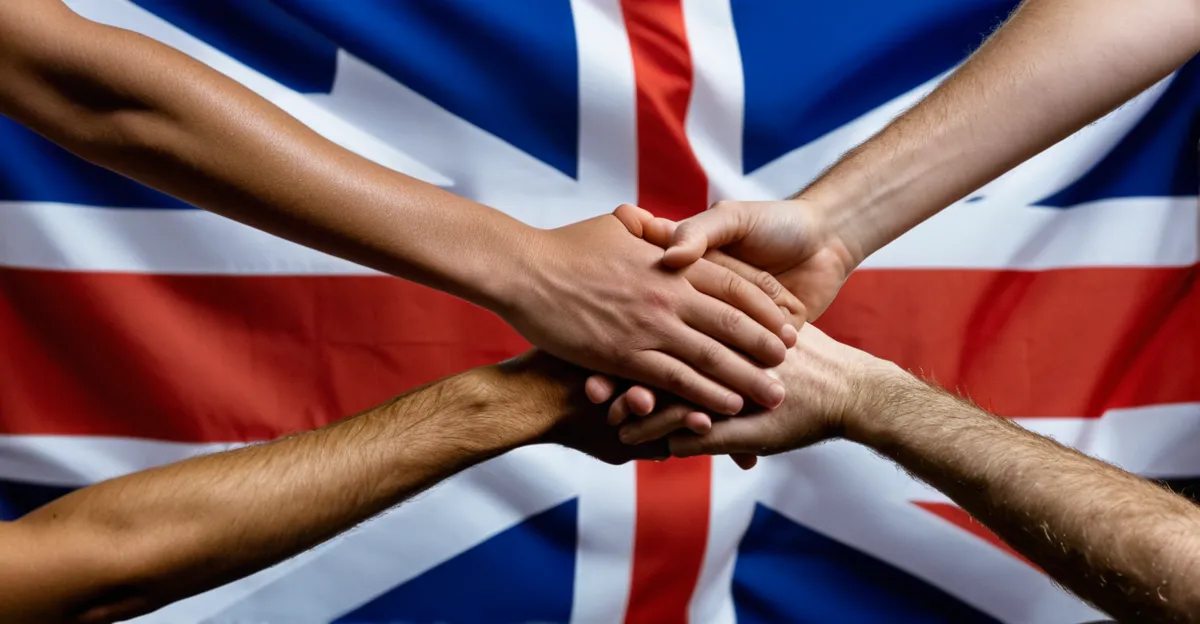Changing Perceptions of the UK Since Brexit
Since Brexit, the UK global image has undergone notable changes, affecting its international reputation in several ways. Prior to Brexit, the UK was widely recognized as a central player in Europe and the world, admired for its political stability, strong economy, and influential cultural presence. This status contributed positively to its overall reputation on the international stage.
However, major shifts in global perception have emerged following Brexit. The UK’s decision to leave the European Union raised questions about its future role and reliability as a partner. Many countries and international observers debated whether the UK could maintain its previous influence without the support of the EU framework. This uncertainty impacted how nations viewed the UK’s diplomatic and economic commitments, sometimes casting doubt on its ability to remain a key actor on the global stage.
Also read : What Are the Prospects for UK News in the Digital Era?
International reactions to Brexit varied. Several world leaders expressed concern over the move, stressing the potential for diminished cooperation between the UK and EU countries. Media outlets across the globe often portrayed the development with skepticism, highlighting challenges related to trade, border issues, and political unity within the UK itself. Such coverage influenced public opinion abroad and contributed to an evolving image that reflected both apprehension and curiosity about the UK’s new path.
In summary, the Brexit impact has been profound on the UK’s standing internationally, reshaping perceptions in diplomatic circles and the wider public at large. This evolving reputation continues to influence foreign policy, investment decisions, and cultural exchanges involving the UK today.
In the same genre : Essential guide: what to do in venice, italy in 2025
Political Influence and Diplomatic Relationships Post-Brexit
The UK diplomacy landscape has experienced clear transformations following Brexit, significantly affecting its international relations. Before Brexit, the UK enjoyed a substantial role within the European Union, which amplified its voice in global organisations. Since leaving the EU, the UK’s direct influence in EU decision-making has diminished, requiring it to rebuild partnerships and assert its presence independently on the world stage.
One major shift in post-Brexit influence is seen in bilateral relationships. The UK has worked to strengthen ties with the United States, leveraging a “special relationship” to maintain robust cooperation in defense, trade, and intelligence. However, this alignment also reflects a strategic pivot, as the UK seeks to diversify its global partnerships beyond Europe. Similarly, engagement with Commonwealth nations has intensified, highlighting a renewed focus on historic alliances and emerging markets.
Diplomatic initiatives post-Brexit have adapted accordingly. The UK has launched new trade and cooperation agreements to replace EU frameworks, which necessitate more direct negotiation efforts. Collaborative projects in areas like climate policy and security continue but often require fresh diplomacy to navigate the absence of EU collective leverage. Overall, this period demands agility from UK diplomacy to maintain its status and influence under a new international order shaped by Brexit.
Economic Reputation and International Confidence
Brexit has significantly influenced the economic perceptions of the UK on the global stage, shaping UK investment trends and overall global economic trust. Investor confidence experienced a marked shift following the 2016 referendum, with many international businesses adopting a cautious stance. This caution stemmed from uncertainties surrounding the UK’s future trade agreements and regulatory environment outside the EU framework.
Trade reputation underwent considerable alteration as the UK exited the EU single market and customs union. Market access changed substantially, prompting businesses to reassess supply chains and export strategies. While the UK government sought to negotiate new trade deals worldwide, these adjustments introduced complexities that influenced economic perceptions. For instance, some global firms viewed Brexit’s impact as a risk factor, which temporarily dampened investment inflows.
Global business and financial leaders responded with mixed sentiments. While some expressed optimism about the UK’s ability to innovate independently and capitalize on new partnerships, others expressed concerns about the potential for reduced market integration and increased costs. The banking sector, in particular, faced scrutiny over possible relocations of operations within the EU to maintain seamless access. This sector’s challenges illustrate wider concerns affecting confidence in the UK’s post-Brexit economic stability.
In summary, Brexit’s impact on the UK’s economic reputation involves a nuanced interplay of risk and opportunity. Investor confidence and global economic trust continue evolving as trade relationships stabilize and the UK’s position in international markets adapts to its new status.
Cultural Perceptions and “Soft Power”
Since Brexit, the UK’s soft power has faced notable challenges and transformations. British culture abroad, once seen as a strong connector globally, is now navigating an environment shaped by political changes and evolving international attitudes. This shift has influenced how the UK’s cultural exports and public diplomacy are received worldwide, impacting its broader global public opinion.
International surveys reveal nuanced shifts in the UK’s cultural influence post-Brexit. While traditional elements such as literature, music, and film continue to enjoy appreciation, the Brexit impact has introduced a complex backdrop. Some global audiences associate British culture with uncertainty and division due to the political context, leading to a softer image in certain regions. However, in other areas, especially where UK cultural institutions remain active, British culture still holds considerable appeal.
Global media and pop culture depict the UK with a mix of fascination and critique. British television, fashion, and the arts retain iconic status, bolstering the country’s cultural footprint. Nonetheless, media portrayals sometimes link British identity with Brexit-related challenges, affecting perceptions of British culture abroad. These depictions shape international public opinion by blending admiration for cultural achievements with awareness of political controversies.
The UK’s soft power remains a vital tool in international relations, influencing diplomacy beyond traditional channels. Cultural programs, academic exchanges, and creative industries continue to foster connections, despite the Brexit impact on political ties. Strengthening these cultural links can help counterbalance diplomatic uncertainties and maintain the UK’s global standing through non-political influence.
Case Studies and Polls Reflecting the UK’s Image
International surveys and global perception polls offer clear insights into how the UK global image has evolved since Brexit. One notable finding is a general decline in the UK’s favourable rankings across multiple regions, reflecting concerns about its future role on the world stage. These polls often measure trust, influence, and economic confidence, capturing nuanced shifts in international reputation post-Brexit.
For instance, surveys conducted in Europe reveal a more cautious view towards the UK, with many respondents expressing doubts about its political stability and economic prospects. This aligns with broader trends in international surveys showing a drop in confidence levels tied to the Brexit impact. Conversely, some Commonwealth countries report steadier or even improved views, reflecting diplomatic efforts to reinforce these historic ties.
Case studies from leading global experts highlight mixed international opinions. While some praise Britain’s resilience and innovation, others point to rising unpredictability and fragmentation as liabilities. These evaluations underscore a complex picture where the UK remains influential but must work harder to rebuild its credibility and address concerns raised by Brexit.
Overall, the global perception polls and detailed case studies serve as valuable tools to track and understand the multifaceted changes in the UK’s standing worldwide since Brexit. They emphasize the importance of continued engagement and strategic communication to improve how the UK is viewed across diverse international audiences.







